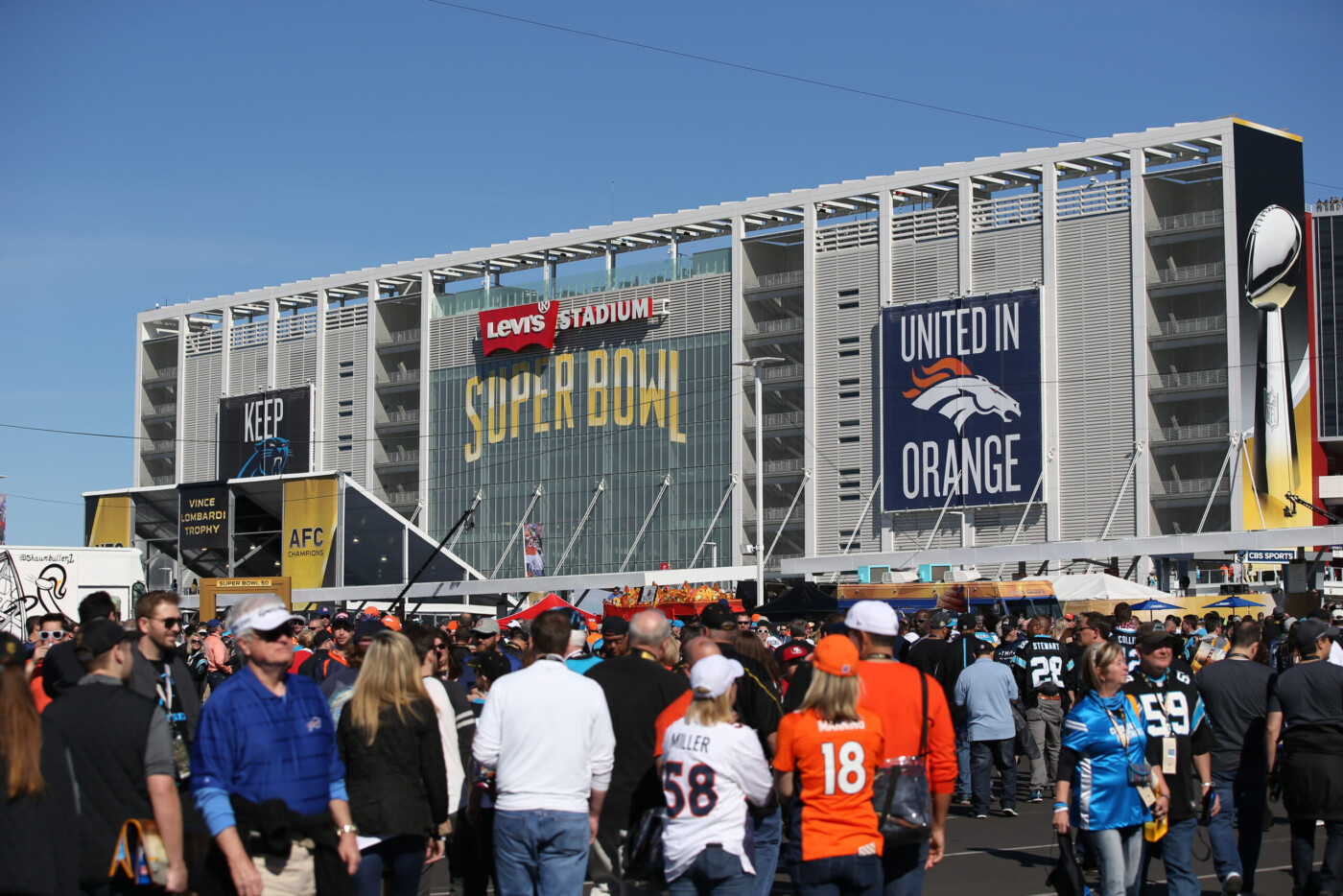The 49ers want another run at hosting the Super Bowl less than a decade after bringing the championship game to Santa Clara.
San Francisco 49ers CEO Jed York said the team is hoping to host the 2026 Super Bowl at the NFL annual meeting Tuesday. This would mark a decade after Levi’s Stadium first hosted the 2016 Super Bowl.
The decision is expected to be made in May, according to a 49ers spokesperson.
Advocates said hosting the nation’s largest sporting event for a second time would bring a much-needed boost to local businesses.
“The Bay Area has a strong history of hosting world-class events, including Super Bowl 50 and being named as the host of FIFA World Cup matches in 2026,” Bay Area Host Committee CEO Zaileen Janmohamed told San Jose Spotlight.
The nonprofit organization advocates to bring sports events to the region.
“Because of the Bay’s unique character as a diverse and innovative region, and as the home to some of the world’s most enthusiastic sports fans, this area is an ideal market for future events.”
Local cities have faced drops in tourism since the COVID-19 pandemic. Team San Jose, the city’s tourism arm, saw a plunge in revenue and netted zero dollars in 2020. That number jumped to an estimated $34.2 million in 2021, but is still far from pre-pandemic levels.
Team San Jose spokesperson Frances Wong said the 2016 Super Bowl brought in approximately $240 million for the Bay Area.
A 2016 Levi’s Stadium report reveals more than 57% of revenue was generated in San Francisco, 12.3% in San Jose and 7.2% in Santa Clara. Wong said the Super Bowl brings local organizations together and Team San Jose has experience securing hotels for NFL teams and promoting attractions in the city.
“We’re already positioned to support such large-scale events,” Wong told San Jose Spotlight.
San Jose Chamber of Commerce CEO Derrick Seaver said bringing the Super Bowl back to town means profits for local businesses before and after the actual game. He said visitors will be flying into regional airports, dining out at restaurants and shopping at retail stores.
“They’re not just here to go to the game,” Seaver told San Jose Spotlight. “They’re putting money into the economy that goes far above and beyond just attending the event itself.”
Last year’s World Cup watch parties brought hundreds of soccer fans — and their wallets — to downtown San Jose. It provided foot traffic to the city’s restaurants and bars, which are recovering post-pandemic.
Seaver said winning the bid for the 2026 Super Bowl means more attention should be put on the South Bay. The last Super Bowl focused on activities and businesses in San Francisco, and San Jose and Santa Clara should get a chance in the spotlight, he said. Either way, having the Super Bowl would be a touchdown for the region, he added.
“We absolutely have a good shot,” Seaver said. “(We’re) a world-class place to hold an event.”
